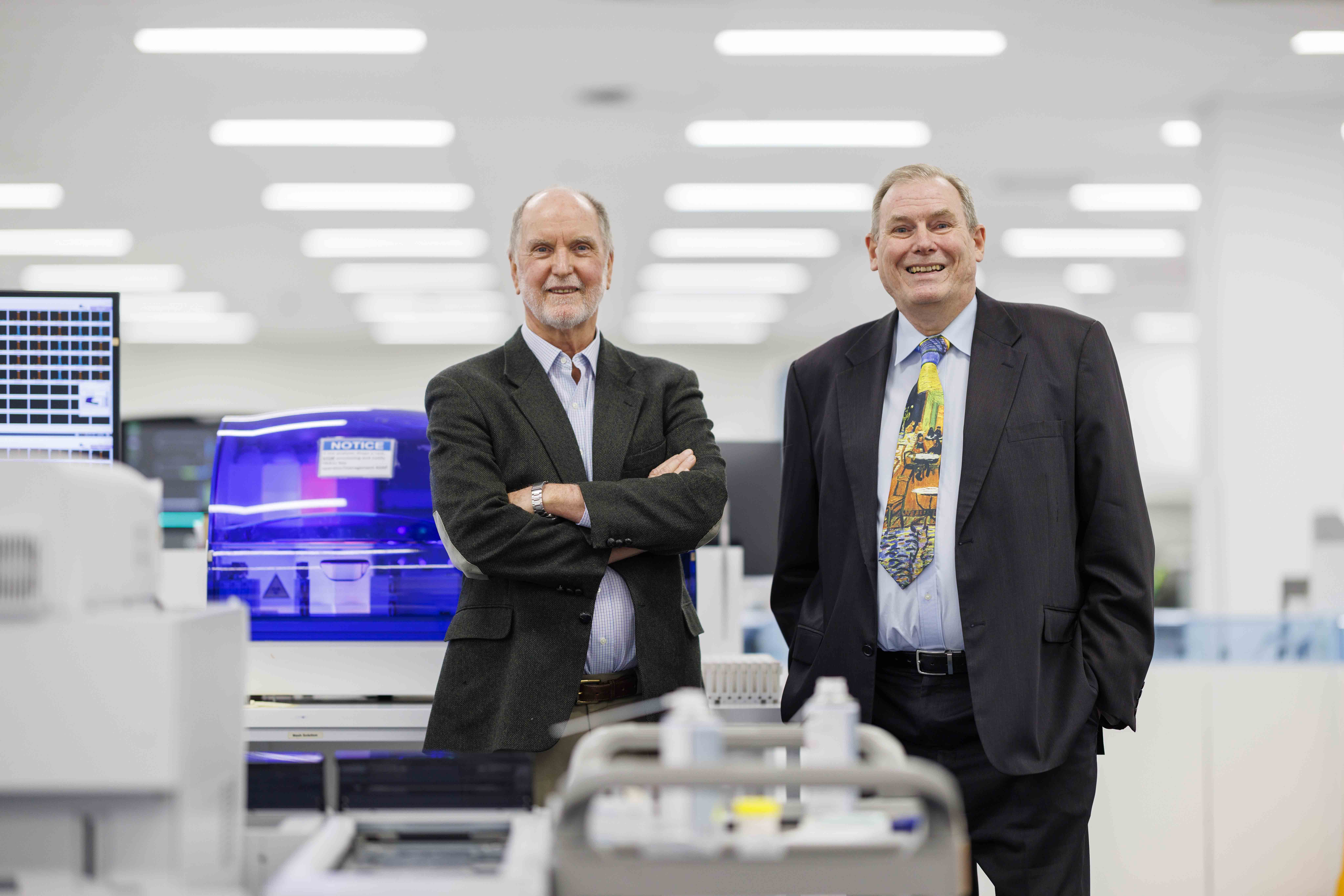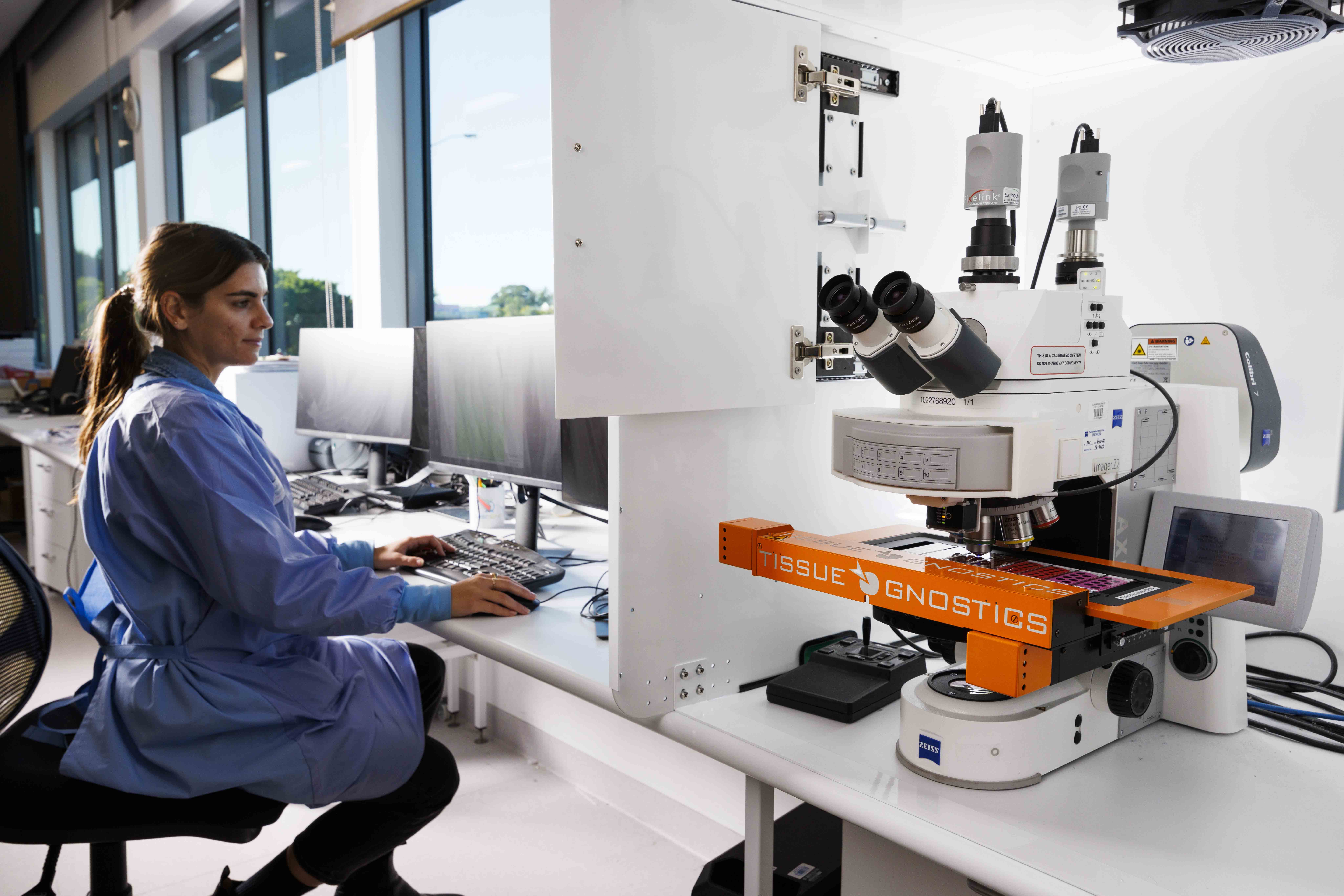In a partnership with Sullivan Nicolaides Pathology (SNP), UQ AI Collaboratory's Professor Brian Lovell and his team have developed an imaging system driven by artificial intelligence that can scan pathology slides and analyse the images to identify microscopic diseases. The first of its kind in the world, the AI speeds up the time it takes to process blood samples and improves diagnostic accuracy.
"We used to look at 100 cells to classify [them], now we can look at 1,000 cells, and you get a much better outcome," said Professor Lovell.

Professor Brian Lovell (R) with Dr Michael Harrison (L), CEO of SNP. Image credit: Glenn Hunt
The AI is trained and continually reviewed by an expert, with diagnoses reviewed by trained pathologists as well. This means a human signs off on everything in the process, while benefiting from the faster analysis offered by the AI. "It's still within human control," says Dr Harrison. "There's still a lot of people involved, as you can see in our laboratory. This isn't about robots taking the jobs of humans in pathology."

SNP's Bowen Hills laboratory processes 35,000 blood amples a day. Image credit: Glenn Hunt
The system does, however, allow faster processing of the 35,000 blood samples that pass through SNP's Bowen Hills, Brisbane laboratory each day. "The field of microscopy hasn't changed much since germs were first identified in the 1800s. So what we're doing is taking microscopy out of that 19th century paradigm into a 21st century paradigm," said Professor Lovell.
Find out more about the impact UQ AI researchers are having in medical imaging.
(Teaser image credit: Glenn Hunt)




